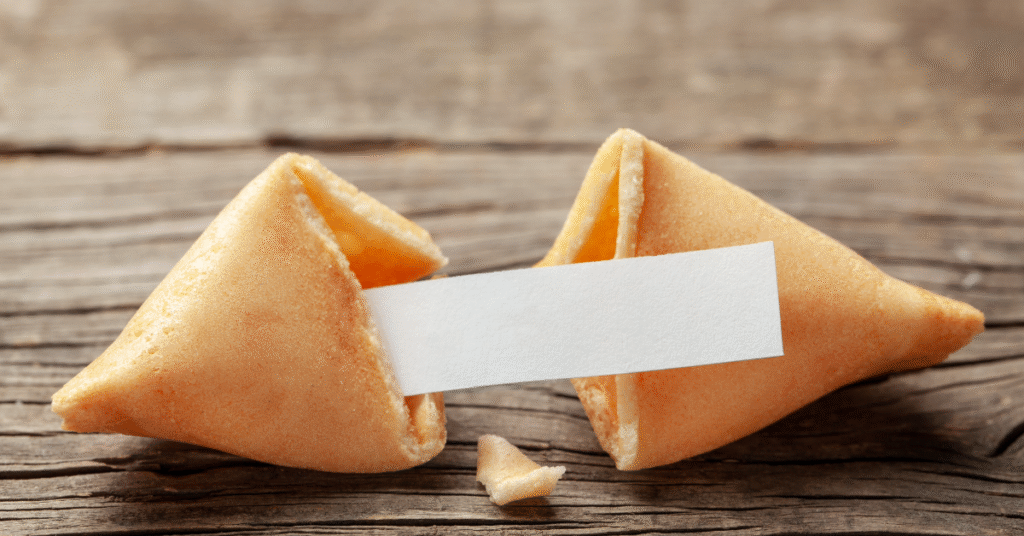By Nahrizul Adib Kadri

We often talk about luck as if it’s something that visits us randomly. A cosmic accident. A stroke of fate. One person gets the promotion, another wins the lucky draw, someone else goes viral overnight — and we chalk it up to “just being lucky.”
But what if luck isn’t entirely random? What if, like many things in life, it can be nurtured?
There’s a simple image I keep coming back to: farmers don’t just hope for rain — they prepare the soil. They till the earth, clear the weeds, sow the seeds. The rain may or may not come, but when it does, it actually matters. Because the ground is ready.
Luck works a lot like that.
In 2003, psychologist Richard Wiseman published his research on the psychology of luck. He followed hundreds of people over ten years, asking them to record events they considered lucky or unlucky, and studied their habits, mindset, and behaviour. The conclusion was striking: “lucky” people weren’t simply blessed by chance — they tended to share certain characteristics.
They were open to new experiences. They noticed opportunities that others missed. They were flexible when things didn’t go according to plan. And perhaps most importantly, they were resilient in the face of setbacks.
Unlucky people, by contrast, were often narrowly focused, anxious about outcomes, and more likely to spiral when something went wrong. In other words, what we call luck may have less to do with probability, and more to do with perspective.
Think of two people walking down the same street. One is hurried, stressed, lost in thought. The other is present, looking around, noticing the flyer for a new course, the person sitting alone who seems familiar, the shop with a “help wanted” sign in the window. One walks right past. The other finds an unexpected connection.
Same street. Same chance. Different mindset.
I’m not saying luck is completely within our control — of course, life still has its randomness. But by shaping the conditions of how we live, think, and respond, we make ourselves luckier over time. We prepare the soil, so that when something good arrives, we’re not caught unready.
Part of this mindset involves staying open. Open to people, to invitations, to ideas that may not have an immediate payoff. Lucky people tend to say yes — not recklessly, but curiously. They leave room for the unplanned. They don’t need the full blueprint before they start.
This also means being flexible. When something doesn’t go to plan, unlucky people often see it as confirmation: Nothing ever works out for me. Lucky people, on the other hand, tend to reframe the same event: That didn’t work out, but maybe there’s something better coming, or I’ll try another route. Over time, that adaptability compounds.
Resilience plays a big role too. If you’ve ever read the stories behind successful people — in business, science, even the arts — you’ll see a common thread. Most had long seasons of being ignored, rejected, or simply stuck. But they didn’t interpret those periods as endpoints. They saw them as part of the process.
The poet Rumi once wrote, “Try not to resist the changes that come your way. Instead, let life live through you.” That sounds like luck — not passive, but flowing. Not fixed, but fluid. Obviously we can’t schedule good fortune, but we can stay receptive to it.
One of the more surprising findings in Wiseman’s study was that lucky people often engaged in small acts that increased their chances of positive outcomes — even subconsciously. They made more eye contact. They talked to more people. They explored new routes, both literally and figuratively. In doing so, they widened their surface area for opportunity. They were, in effect, planting seeds everywhere.
So how do we apply this in daily life?
It begins with awareness. Start noticing when you’re closing doors prematurely — assuming something won’t work, or that a connection won’t matter. Try saying yes to something small but unfamiliar. Be willing to revise your plan when the road shifts. And when things go wrong — because they will — don’t assign meaning too quickly. Sometimes what feels unlucky today becomes a turning point tomorrow.
Also, pay attention to where you place your gaze. It’s easy to focus on what didn’t happen, what you missed, or what others seem to have that you don’t. But luck, more often than not, is hidden in the things you do have — skills, relationships, experiences — that only need to be activated.
You don’t need to chase luck. You only need to stop blocking it. Because luck isn’t just a matter of chance. It’s a matter of openness. Of curiosity. Of keeping your hands open long enough for something to land.
So yes, keep doing the work. Keep showing up. But also — leave a little space for the unexpected. You may not be able to summon the rain. But you can prepare the soil.
And that might just be enough.

Ir Dr Nahrizul Adib Kadri is a professor of biomedical engineering at the Faculty of Engineering, and the Principal of Ibnu Sina Residential College, Universiti Malaya
